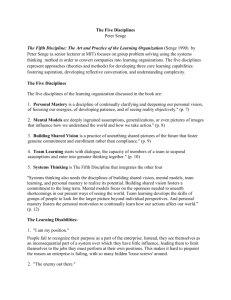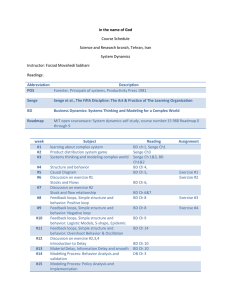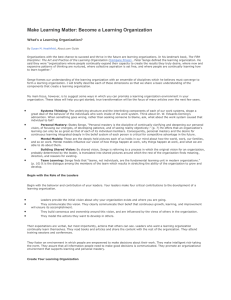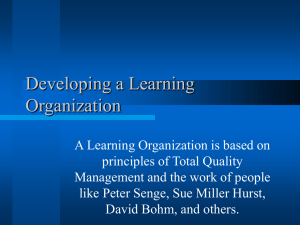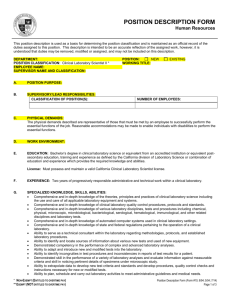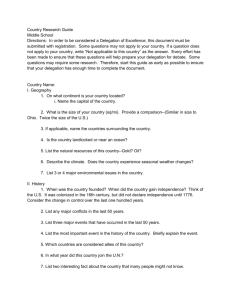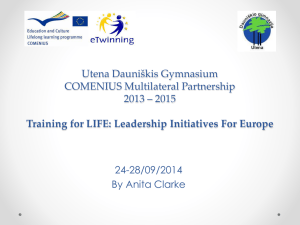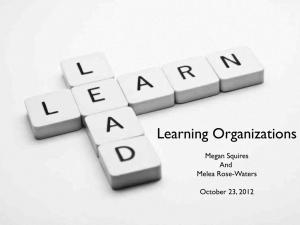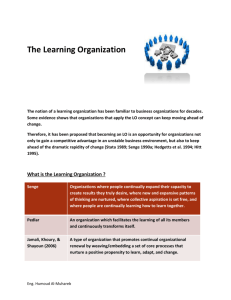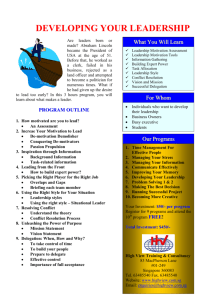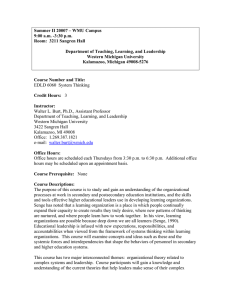Becoming Management Material Course Outline
advertisement
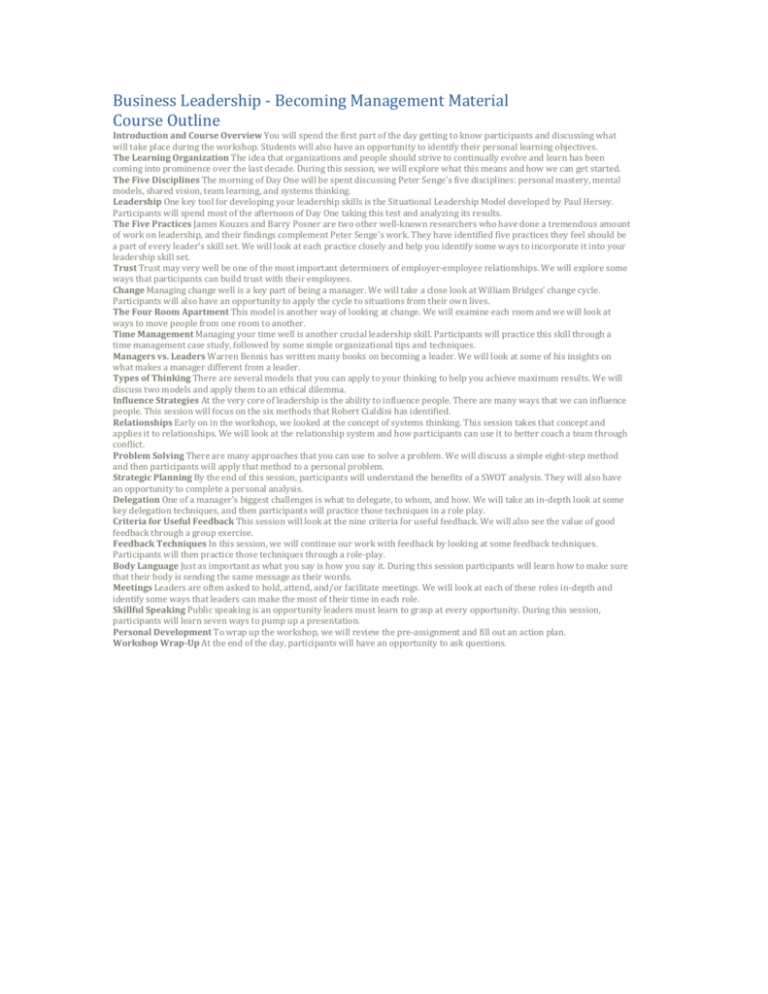
Business Leadership - Becoming Management Material Course Outline Introduction and Course Overview You will spend the first part of the day getting to know participants and discussing what will take place during the workshop. Students will also have an opportunity to identify their personal learning objectives. The Learning Organization The idea that organizations and people should strive to continually evolve and learn has been coming into prominence over the last decade. During this session, we will explore what this means and how we can get started. The Five Disciplines The morning of Day One will be spent discussing Peter Senge's five disciplines: personal mastery, mental models, shared vision, team learning, and systems thinking. Leadership One key tool for developing your leadership skills is the Situational Leadership Model developed by Paul Hersey. Participants will spend most of the afternoon of Day One taking this test and analyzing its results. The Five Practices James Kouzes and Barry Posner are two other well-known researchers who have done a tremendous amount of work on leadership, and their findings complement Peter Senge's work. They have identified five practices they feel should be a part of every leader's skill set. We will look at each practice closely and help you identify some ways to incorporate it into your leadership skill set. Trust Trust may very well be one of the most important determiners of employer-employee relationships. We will explore some ways that participants can build trust with their employees. Change Managing change well is a key part of being a manager. We will take a close look at William Bridges' change cycle. Participants will also have an opportunity to apply the cycle to situations from their own lives. The Four Room Apartment This model is another way of looking at change. We will examine each room and we will look at ways to move people from one room to another. Time Management Managing your time well is another crucial leadership skill. Participants will practice this skill through a time management case study, followed by some simple organizational tips and techniques. Managers vs. Leaders Warren Bennis has written many books on becoming a leader. We will look at some of his insights on what makes a manager different from a leader. Types of Thinking There are several models that you can apply to your thinking to help you achieve maximum results. We will discuss two models and apply them to an ethical dilemma. Influence Strategies At the very core of leadership is the ability to influence people. There are many ways that we can influence people. This session will focus on the six methods that Robert Cialdini has identified. Relationships Early on in the workshop, we looked at the concept of systems thinking. This session takes that concept and applies it to relationships. We will look at the relationship system and how participants can use it to better coach a team through conflict. Problem Solving There are many approaches that you can use to solve a problem. We will discuss a simple eight-step method and then participants will apply that method to a personal problem. Strategic Planning By the end of this session, participants will understand the benefits of a SWOT analysis. They will also have an opportunity to complete a personal analysis. Delegation One of a manager's biggest challenges is what to delegate, to whom, and how. We will take an in-depth look at some key delegation techniques, and then participants will practice those techniques in a role play. Criteria for Useful Feedback This session will look at the nine criteria for useful feedback. We will also see the value of good feedback through a group exercise. Feedback Techniques In this session, we will continue our work with feedback by looking at some feedback techniques. Participants will then practice those techniques through a role-play. Body Language Just as important as what you say is how you say it. During this session participants will learn how to make sure that their body is sending the same message as their words. Meetings Leaders are often asked to hold, attend, and/or facilitate meetings. We will look at each of these roles in-depth and identify some ways that leaders can make the most of their time in each role. Skillful Speaking Public speaking is an opportunity leaders must learn to grasp at every opportunity. During this session, participants will learn seven ways to pump up a presentation. Personal Development To wrap up the workshop, we will review the pre-assignment and fill out an action plan. Workshop Wrap-Up At the end of the day, participants will have an opportunity to ask questions.
